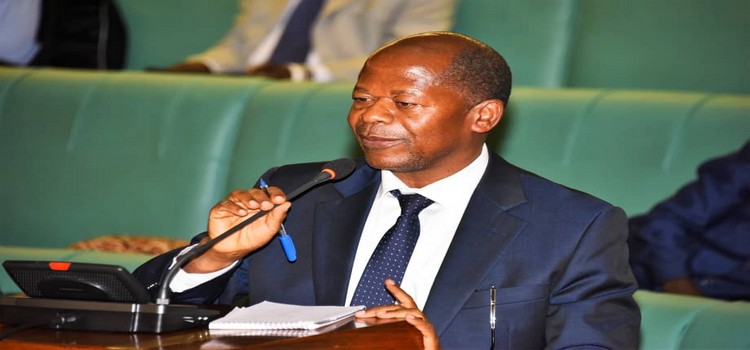
KAMPALA- The Ministry of Education and Sports has upheld the recent 15% increment of fees at Makerere University arguing that this will be critical at helping the University meet the challenges of the deteriorating quality of service delivery at the University.
Government’s position was revealed by John Muyingo, State Minister for Higher Education during the plenary sitting, who argued that the fees had not been reviewed for more than 10 years.
His statement was in response to a matter raised by Ann Adeke, National Youth Representative who tasked the Ministry of Education to explain the recent decision by Makerere to increase fees by 15% for the 2018/2019 academic year.
Muyingo told Parliament that initially, the University Council had proposed to raise the interim fees in the range of 49%-90% for selected programmes, but the proposed reviews were still far below the unit cost, recommended by the late Abel Rwendeire committee.
The Minister defended the new fees structure saying that it was widely advertised in the mass media and the student’s leadership, through the Guild Representative Council (GRC) resisted the University Council decision, and requested the council to defer her decision, pending further consultations and students’ input.
As such, the GRC set up a committee mandated to study the University Council decision and make an input and the team is said to have bench-marked at Nairobi University and it was established that Makerere University charges fees that are much lower than fees charged by Nairobi University.
According to Muyingo, the whereas Makerere a student pursuing a Bachelor Of Medicine & Surgery is charged Shs2,688,000 in the first year, their counterpart studying the same course at Nairobi University parts with Shs17,538,000 in first year, however as much as the fees structure at Makerere remains constant through the years of study, that of Nairobi changes.
Bachelor Of Medicine & Surgery at Makerere University costs Shs2,688,000, Bachelor Surgery Of Dental Shs2,688,000, while Bachelor Of Agriculture goes for Shs2,688,000.
Additionally, Bachelor Medicine Of Veterinary at Makerere costs Shs1,680,000, Bachelor Of Industrial Art And Design Shs800,000 and Bachelor Of Laws costs Shs2,520.000.
On the other hand, students pursuing Bachelor Surgery Of Dental at Nairobi University pay Shs17,538,000, Bachelor Of Agriculture Shs5,846,000 and Bachelor Of Veterinary Medicine Shs9,978,900.
While Bachelor Of Industrial Art And Design costs Shs5,716,5000 and Bachelor Of Laws at Nirobi University goes for Shs6,529,020
In their recommendations to the University Council, the GRC stated that instead of increments ranging from 49% to 90% on selected programmes, fees for undergraduate programmes should be increased across the board, by 15% for the next five years beginning with academic year 2018/19.
Although, the GRC seconded the fees increment on condition that the University Council and management put in place measures to ensure that service delivery is improved.
Muyingo downplayed arguments that the new decision would likely result into strikes at the University, arguing that there is now consensus between the university council and the students and called on Makerere University to issue admission letters to first year students as soon as possible, to enable parents and students prepare for commencement of the first semester of academic year 2018/2019.
However, Muyingo’s statement was rejected by some MPs with Adeke taking the lead, and described the new policy as discriminatory and intended to maintain the status quo of private students shouldering the burden of Government students.
Adeke argued: “Time and again, Makerere is run by private students and Government funding has remained constant. 15% has been put as increment for private students, so, show us the 15% that Government is going to increase for each student who is going to be Government sponsored in the University and the budget has been passed.”
She lashed out at the GRC for taking Kenya as their case study wondering if they took into consideration the fact that Kenya’s budget is domestically funded by almost half percent compared to Uganda’s that is donor reliant.
Moses Kasibante questioned where the GRC got the moral authority to determine the fees structure of the generation that isn’t going to live, saying the incoming students must have had a say in this decision, not the outgoing students to determine what the new students should pay.
Deputy Speaker, Jacob Oulanyah however said there is nothing Parliament can do, as Adeke’s matter wasn’t brought as a motion before Parliament to warrant a debate and decision from Parliament, as required in the Parliament Rules of Procedure.





